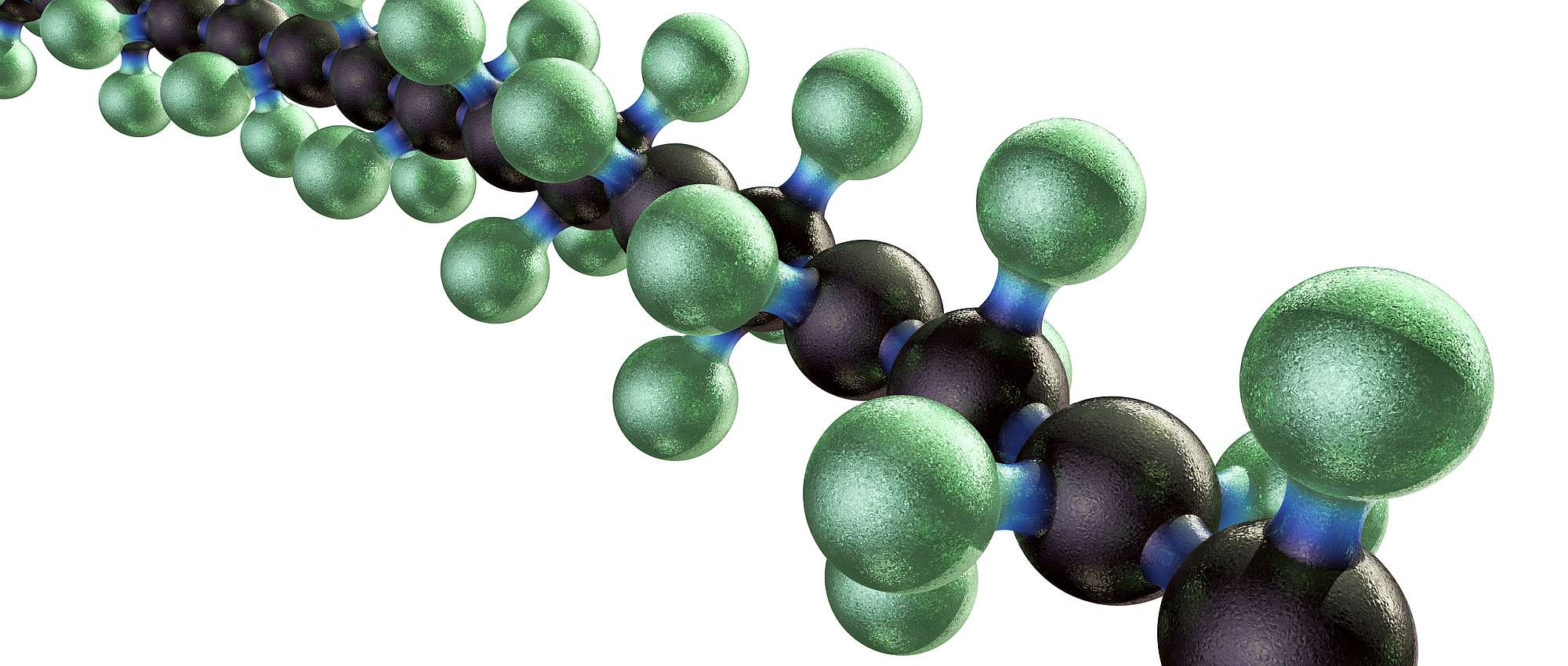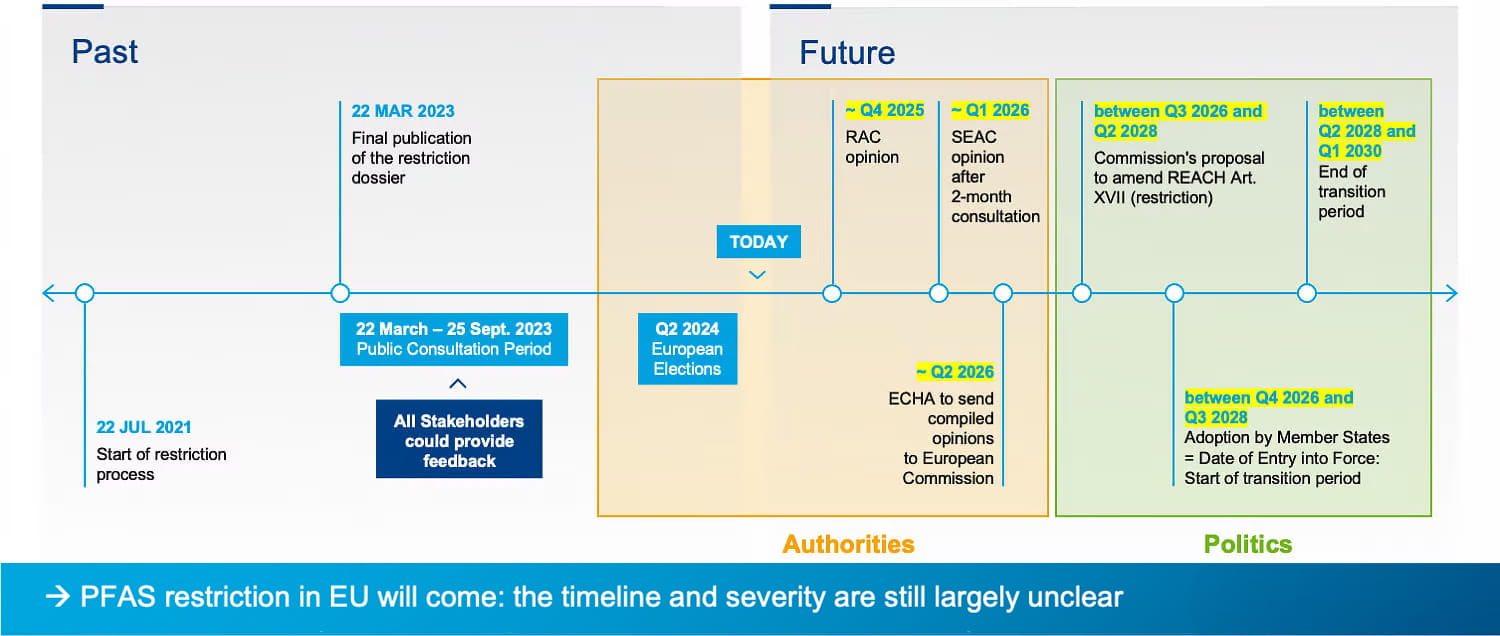
Statement on the European Chemicals Agency PFAS Restriction Proposal
In early February 2023, the European Chemicals Agency (ECHA) has published a proposal prepared by five EU member states to regulate the substance class of per- and polyfluoroalkyl substances (PFAS*), which is intended to largely restrict the placing on the market, manufacture, use and import of all PFAS.
On September 25th, 2023, the six-month public consultation period, where affected parties had the opportunity to provide further information to the ECHA on scientific and socio-economic factors, ended. More than 4,400 organizations, companies and individuals submitted more than 5,600 comments and information on the restriction proposal to the ECHA.
Freudenberg Sealing Technologies has also participated in the stakeholder consultation and actively engaged in relevant industry associations. We fully support the goals of the European Green Deal and the Chemicals Strategy for Sustainability to improve protection of human health and the environment from risks posed by chemicals and we advocate for a responsible, differentiated and risk-based approach to regulate PFAS. More details on our statement on the EU PFAS restriction proposal are available at https://echa.europa.eu/restrictions-under-consideration/-/substance-rev/72301/term
ECHA’s committees for Risk Assessment (RAC) and Socio-Economic Analysis (SEAC) will now evaluate the proposed restriction and consider the relevant information received through the consultation.
* PFAS definition: Any substance that contains at least one fully fluorinated methyl (CF3-) or methylene (-CF2-) carbon atom (without any H/Cl/Br/I attached to it).
PFAS REACH Restriction: Possible Timeline (not confirmed)
The following diagram shows the next steps in more detail:
We will continue to offer fluoropolymer-based materials like PTFE and FKM for the time being, given their exceptional resistance to temperature, corrosion, chemicals, and wear, and their recognition as having insignificant environmental and human health impacts. Moreover, the characteristics of fluoropolymers allow a broad application range and robustness against unknown or varying fluids. We are committed to serve our customers’ needs and make use of these high-performing raw materials.
At the same time, we will continue to monitor the restriction proposal and legal requirements closely to be a reliable partner for our customers.
In addition, we will continue offering many other high-performance materials in our portfolio that do not contain fluoropolymers. Due to our long-term experience and expertise in material development and testing, we are continuously evaluating and developing application-based alternatives.
Besides the ongoing EU restriction proposal, are also closely monitoring recent developments and reporting obligations outside of Europe. We will comply with applicable requirements and align with affected customers as soon as specific reporting obligations will become effective.
Click here to find our statement to the ECHA on the planned restriction proposal
Below you can find a Q&A further explaining the current situation.

OMK-PU 30500: The Perfect PTFE Alternative
Experience the evolution of sealing technology with OMK-PU AU 30500, the perfect PTFE alternative that offers superior performance and sustainability.
Explore now!

